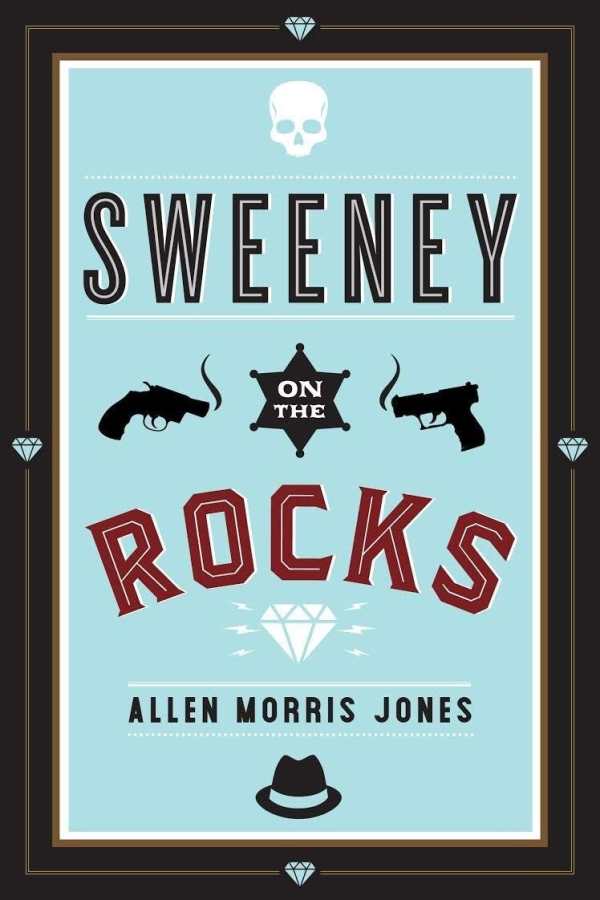Sweeney on the Rocks
Allen Morris Jones’s Sweeney on the Rocks is a quick-witted, dark-humored crime novel whose clever plot twists and morbid sarcasm never let up. Its characters, relationships, and mob-versus-the-law moralities are excavated to an extent more deserving of measured scrutiny than a brisk skim.
While its numerators range from mobsters and exes to FBI agents and devoted comrades, the book’s common denominators are two: Ted Sweeney, a small-town handyman who’ll do anything for money; and the anonymous narrator, who has a dead knack for storytelling.
This omniscient, macho, wisecracking narrator’s expertise in mob families, criminal and law-enforcement mentalities, and small-town life empowers him to open one locked door after another. Regardless of whether those doors lead to the inner workings of an individual or an institution, the key consists of specialized jargon and syntax that could only be employed by those most intimately familiar with whatever resides within.
Here, new characters routinely debut in the midst of bigger-than-life (or death) scenarios. Questions outpace answers; resolutions merely spawn more mysteries. Missing pieces are parceled out as if they are precious gems—which, sometimes, they are.
Some scenes illustrate how cultures as divergent as those of New York City crime families and small-town Montana witness protection programs function. Others flesh out relationships by hopping aboard one of two trains: the first, fueled by decades-old memories, heads for the present; the other, fueled by dread, retreats from imminent disaster, searching for salvation before it’s too late. Gaining speed in proportion to the diminishing distance between them, it’s not always so easy to tell which train is which.
The narrator assesses each scene like a diamond cutter who’s obsessed with the most promising rough stones. Refusing to waste words on any observation that’s incapable of shining light deep into the story, he cuts and polishes; the result is a book as flawless as an authentic diamond could possibly be.
Reviewed by
Linda Thorlakson
Disclosure: This article is not an endorsement, but a review. The publisher of this book provided free copies of the book to have their book reviewed by a professional reviewer. No fee was paid by the publisher for this review. Foreword Reviews only recommends books that we love. Foreword Magazine, Inc. is disclosing this in accordance with the Federal Trade Commission’s 16 CFR, Part 255.

